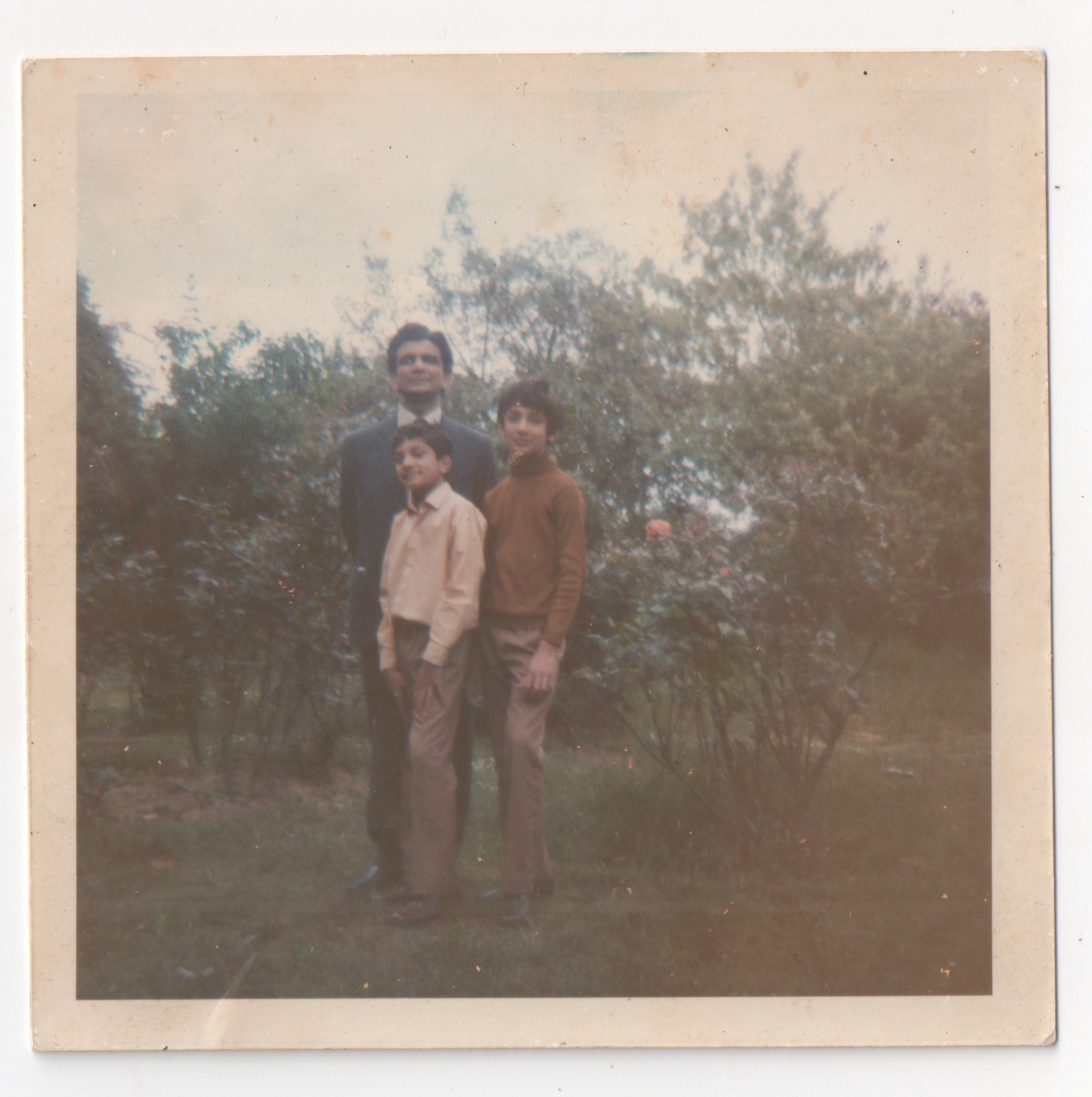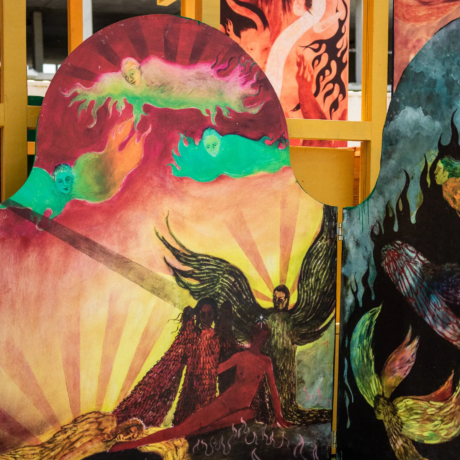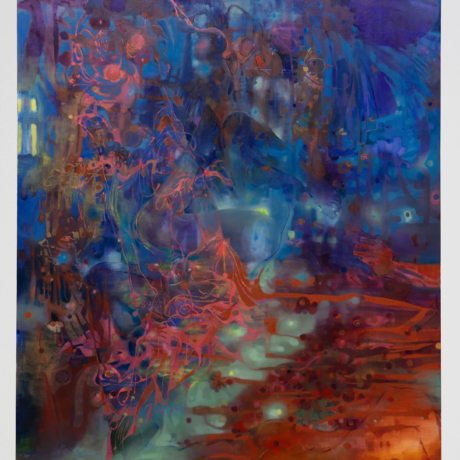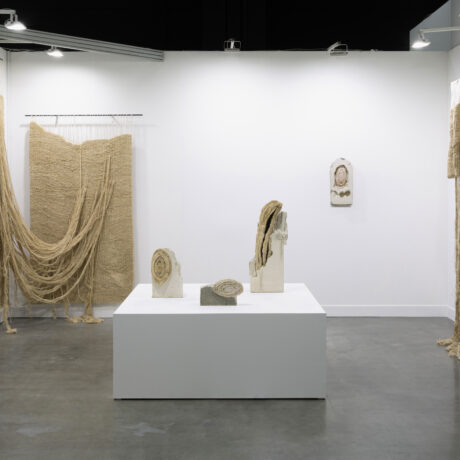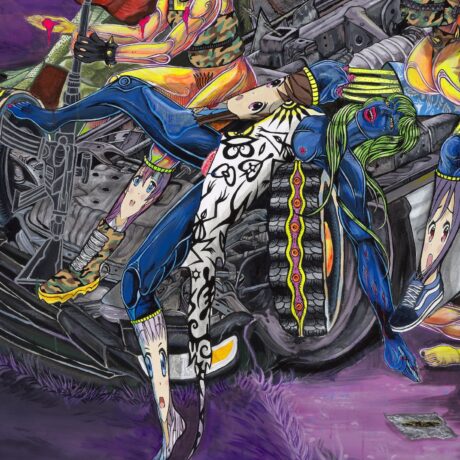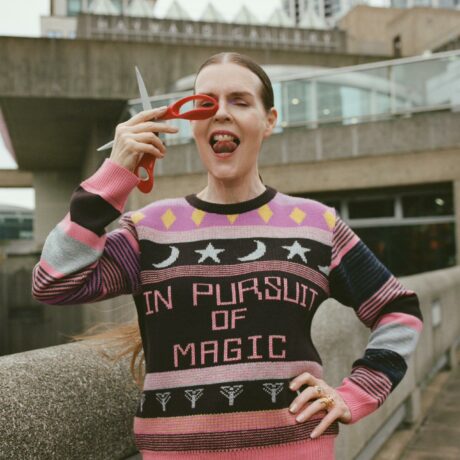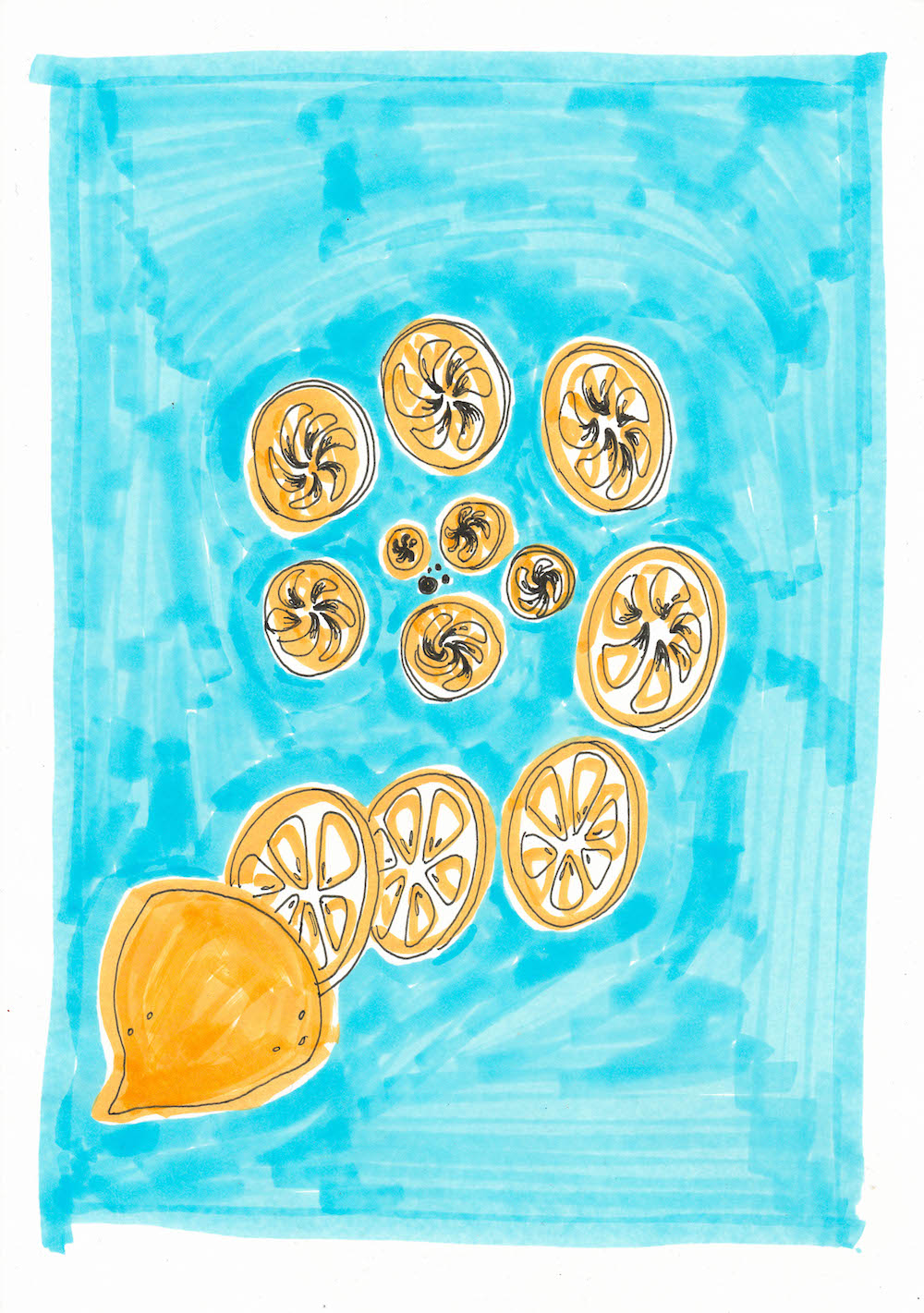
“Imagine you are in a kitchen, and on the table is a lemon. You cut the lemon. You smell the lemon. Inhale deeply…” The mellifluous voice of our hypnobirthing teacher floats over us. I imagine us, my boyfriend and I, in the same kitchen, embarking on our life-changing adventure together. “Open your eyes and come back to the room.” Blinking, my nostrils filled with patchouli, I glance sideways at my boyfriend, who appears to still have his eyes closed. “So where did you imagine yourselves? How did you cut the lemon, and could you smell it?” our teacher asked us. “Lemon?” my boyfriend says, blankly. “I think I fell asleep…”
In the first months of my pregnancy, I viscerally despised men. I would stare at them on the tube and think: You do nothing. You are pathetic, lesser life forms. I’ve spoken to other women who have told me they’ve had similar feelings. Luckily (especially for my boyfriend) this feeling subsided. But since pregnancy has made me realize how different we truly are, men and women, it has also made me think about whose fault it is that things are going so wrong. It’d be hard to not think about this in the current, very public revolution against sexual abuse and rape. I can’t agree with Richard Benson’s suggestion, in a recent Evening Standard magazine article, that British men are essentially all bumbling buffoons, emotionally stifled Hugh Grant/Mr Darcy types. But he’s right that men shouldn’t feel that masculinity is toxic. He suggests that cultural guidance is needed.
Obviously, I have no idea how it feels to be a father. My only experience of it is of having grown up with one; one who himself grew up in a minority, and has been scarred by his own encounters with racism, poverty, and socio-cultural disempowerment. The subject of male emotion and the role of fatherhood is pretty much taboo in contemporary culture in the west. When father figures are explored in mainstream culture, the qualities that epitomize the positive model are strength, bravery and stoic authority (think of the father in the Paddington 2). I realized this when I watched the recent documentary film The Work, about a radical form of group therapy at Folsom Prison in the US. Men from outside come to participate in the patient-led treatment with the level-four convicts, and it transpires that all of them have daddy issues. No one even mentions their mother, but the lack of father figures, or the presence of cruel, draconian fathers, is something every single man talks about during their four-day retreat, pinpointing it as the root of their psychological problems. The men encourage each other to cry—a process so difficult and painful for some of them that it’s incredible to watch for any woman who has menstruated. One man, a non-prisoner, was so deeply scarred by his father’s dismissal when, aged six, he couldn’t find the correct tool in the box that he had been asked for that, now in his twenties, his self-esteem is crippled and he is barely able to communicate—let alone find the self-confidence to commit to a job or relationship.
The Work is a very rare exploration of the importance of different types of fatherhood and their effects on society. In our culture—and in our political system—despite the fact men typically dominate, the images of fathers we get are very narrow. In the UK, new fathers get two weeks paternity leave. Whether it’s in adverts for baby products or in art galleries, there are many women exploring the female aspect of parenting, but very few men. A more nuanced image of fatherhood in cinema comes in the form of the new Netflix release by Noam Baumbach, The Meyerowitz Stories. Incredibly tender, this follows three siblings and their relationship with their dysfunctional artist father. Eschewing gender stereotypes and ruminating on the role of men in families, the influence fathers have on their children and the generational divides in attitudes on gender, this is the kind of exploration of masculinity, maleness and the emotional complexities of that experience that we’re lacking in the arts. Most of the positive images we currently have of fathers are only in the genres of historical fiction, sci-fi or fantasy. In contemporary art, though penises proliferate, references to fatherhood are often elliptical.
During my pregnancy, many women have shared stories of their own pregnancies, childbirth, children or their decision not to reproduce. I have noticed men are more reluctant to share, and perhaps this is because, culturally and socially, we don’t see it happening enough. I’ve asked fathers, of all ages, including my own, about their experiences of becoming dads, and there’s no doubt that parenthood shapes them as much as it does women. But in contemporary art, the subject of fatherhood is still, it seems, unfashionable.
At my thirty-five week ultrasound this week, we still didn’t know the sex of the squished, chubby face we saw sleeping on the screen—my boyfriend was a little disheartened it now seemed to look more like me than him. I began to think about the possibility of giving birth to a boy (there could be a penis growing in my body!), about my own paternal line and how ideas of fatherhood are passed down on a familial, rather than ideological, level. My late paternal grandfather was brilliant—as grandfathers are. He emigrated twice across the world (first, from his native Galle, Sri Lanka, to Ealing, and then again to Melbourne). He was one of twelve children and had five children of his own. He was an avid socialist and devout Catholic, somewhat absent-minded, a drinker, gambler and smoker. He bought endless useless items from catalogues on impulse. He wrote instructions for aeroplane parts, and once spontaneously took a test flight—only permitted to do a quick trial in UK airspace—to India, chasing after a pop star he liked. Lately, I read some letters that he wrote to my father, sent on ultra-thin airmail paper, while he was on another adventure in Texas in the 1970s. After detailed descriptions of the “new” game of ten-pin bowling, scolding my dad to use a contrasting pen in his next letter and expressing disappointment with American culture, he signed off affectionately: “Cheer up son, we’ll make it through, together.” A few hours later I found myself bent double over the kitchen table with the letters, tears plopping around the pages (blame the hormones).
At a press lunch recently, a well-known art critic told us a story about a man he met in a hospital who had just become a father. The man, he said, was sitting, blanched and forlorn, staring at the floor. The birth had gone very well, but asked if everything was OK, the man exclaimed: “It’s a boy—I just know it’s going to be a disaster!”
Later, at home, I asked my boyfriend what kind of father he wants to be.
“Fun.”
